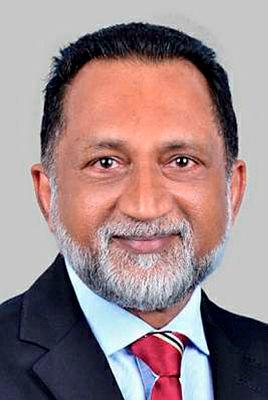PETALING JAYA: Higher learning institutes have been producing more university and college graduates than what the market needs, said Malaysian Employers Federation (MEF) president Datuk Dr Syed Hussain Syed Husman.
He added that it has resulted in a mismatch between available jobs and the increasing number of graduates.
“Job sectors such as agriculture, manufacturing, service providers and construction have been affected,” he said.
In 2021, the Statistics Department stated 2.9% of 4.57 million employed graduates worked fewer hours than expected, while 33.9% experienced skills related underemployment.
Last year, MyFutureJobs data revealed that some 40% of graduates worked in semi-skilled and low-skilled positions.
Syed Hussain expressed concern over challenges arising from the growing prevalence of flexible gig work and the shortage of job opportunities that match graduate qualifications.
“It is difficult for the private and public sectors to create and sustain jobs appropriate for fresh graduates.
“These difficulties highlight the need to address underemployment among graduates.
“Private sector employers, who account for 90% of job opportunities, need support to create more job openings.”
He said MEF was collaborating with the Higher Education Ministry and Skills Development Department to address skills mismatch in the job market.
“We engage private sector employers in curriculum development and encourage them to share expertise with students.
“MEF also promotes instructors gaining workplace experience by working with private sector companies,” he added.
Syed Hussain recommended that employers invest in upskilling their workforce through the MEF training academy.
“Training is essential for employers to continuously upskill and reskill their workforce. Employers could boost career development and motivate staff to enhance their skills, resulting in increased productivity.”
National Association of Private Educational Institutions secretary general Dr Teh Choon Jin said higher education institutions must take proactive steps to align their academic offerings with current and future industry requirements.
“This alignment necessitates the regular updating and adaptation of curricula to incorporate practical skills and knowledge that employers actively seek.”
Teh also underscored the importance of fostering strong connections with industries.
“Implementing specific and strategic measures is essential to ensure that future graduates possess the necessary skills and strong industry orientation, which could be achieved through focused and targeted approaches that directly address the needs of various industries.”
He said the Graduate Employability Management digital platform allows graduates, especially those under the purview of the Higher Education Ministry, to apply for internships and job opportunities.”
Teh said graduates need to possess field-specific knowledge and a mix of technical and soft skills. Some commonly cited soft skill gaps include communication, problem-solving, critical thinking, presentation and English proficiency.
He added that proficiency in using digital tools was crucial for effective decision-making and innovation.
“Graduates should be prepared for a dynamic job market, seek guidance and stay informed to advance their careers proactively.”









